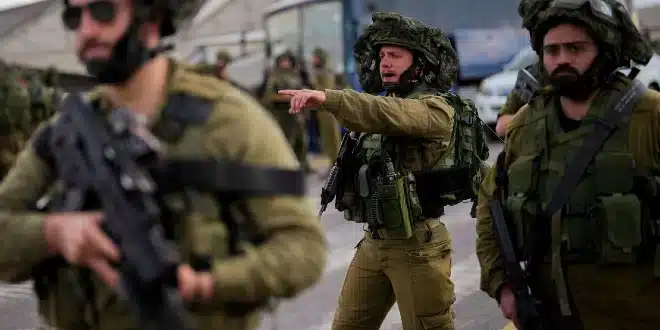Hezbollah conducted attacks against Israeli forces in northern Israel, while Israel responded with artillery fire in the Marjayoun plain area. Early in the morning, Hezbollah shelled an Israeli unit near the al-Raheb post and later hit an armored unit at the Berkat Risha post with missiles, claiming direct hits in both instances.
These attacks followed a day of deadly exchanges, including an Israeli airstrike in Odaisseh that resulted in the deaths of three Hezbollah paramedics, and a missile strike in Margaliot, northern Israel, that killed at least one foreign worker, attributed to Hezbollah though not officially claimed by them.
Israeli airstrikes targeted the southern Lebanese towns of al-Sultaniyeh, Seddiqin, and Bint Jbeil later the same day.
During this period of heightened violence, U.S. envoy Amos Hochstein was in Beirut, emphasizing that a ceasefire in Gaza might not extend to the Lebanon-Israel conflict. He called for a lasting ceasefire at the border after meeting with Lebanese officials, amidst Hezbollah’s insistence that peace can only be achieved by ending the Gaza war.
The ongoing conflict has led to daily exchanges of fire between Hezbollah and Israel since the war with Hamas began, displacing thousands and raising fears of a wider regional conflict. In northern Israel, evacuations have taken place, with 60,000 people leaving their homes due to safety concerns.
Following an anti-tank missile strike in Margaliot, which resulted in casualties among foreign workers, Hochstein held discussions with Lebanese leaders, indicating that a Gaza ceasefire does not automatically apply to Lebanon, highlighting the need for specific discussions on Lebanon’s situation.
Since the conflict’s start, over 215 Hezbollah fighters and nearly 40 Lebanese civilians have been killed, with Israel reporting the deaths of nine soldiers and 10 civilians.
Israeli officials have warned of an expanded war in Lebanon if Hezbollah does not move its elite forces north of the Litani River, as demanded in a 2006 truce. Western diplomats have proposed several ceasefire plans, most requiring Hezbollah to withdraw from the border area.
Hezbollah’s deputy leader, Naim Qassem, criticized the United States for obstructing U.N. Security Council resolutions to end the Gaza war, stating that ending aggression in Gaza is the key to stopping the wider regional conflict.


